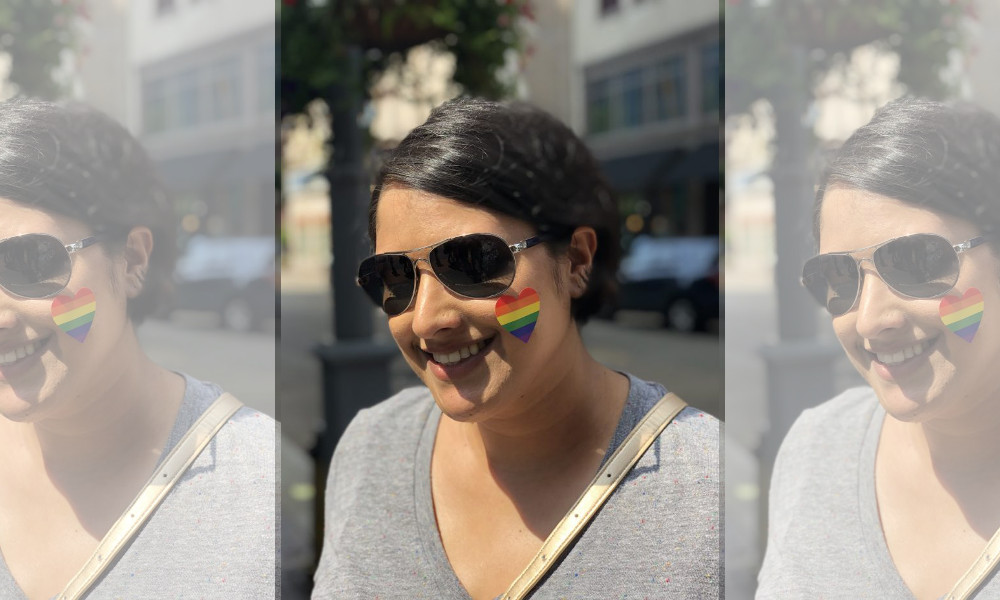
Dating is a social activity and it requires going out in public together. But for many brown girls, in the suburbs or in small towns, there is less access to resources and definitely a fear of desi aunties knowing your business. When people may not know who you truly are, dating can be insular, lonely and frustrating.
So how does an LGBTQ brown girl find love?
1. Start by Telling Your Story
If you are not sure where someone stands, or you think they may not be interested, let them know who you are by sharing your story. This is a more subtle and less direct approach than coming right out and telling someone you’re a lesbian. It will also give you some time to read their reactions as your story unfolds, and walk away if you begin to feel uncomfortable. Look for things like laughing at your jokes, eye contact, and agreeability. Most importantly, follow your instincts.
2. Thankfully Today, We Have the Internet
There will always be dangers in what the internet can open up for a person who is already feeling lonely, so be cautious. Despite this, it can also be a great way to make friends and begin a journey of understanding who you are and finding love. Social media groups, Meet-Ups or dating apps are a great place to start. For younger brown girls there are sites like TrevorSpace for youth LGBTQ or questioning.
3. Coming Out
In the South Asian community (like many others) you will find people in various stages of living their LGBTQ life. Being respectful of that and having open communication on that topic is a critical part of navigating the additional struggle of cultural biases and prejudices deeply rooted in communities and families. You may encounter situations where you or your partner are not ready to be open about a relationship. Being mindful of how that may affect the other person is important and can be a guide in determining the strength of the relationship or compatibility. Discuss it before it becomes too frustrating.
[Read Related: #NotMyBinary: Deconstructing the Gender Binary with our Friendly Neighborhood Brown LGBTQ Superheroes]
4. Get Out and Explore
Yes, where you live right now may be limiting and filled with watchful eyes, but not every place is like that. In large cities, there are organisations and parties which make it easier to meet others and speak openly about your sexual orientation. For example, in New York City, Sholay Events hosts parties featuring LGBTQ musical talent. We held our Queering Desi event at the end of June as well in NYC. The National Queer Asian Pacific Islander Alliance (NQAPIA), held their annual conference on July 26-29, 2018 in San Francisco. However, remember not to use this as an escape. Having two separate lives can get complicated and painful as relationships develop. Instead, use the time out of town to meet friends and keep the lines of communication open.
5. Long Distance Relationships
These are great opportunities to find love. They can take a little more effort but be a great option for those living in small towns or those surrounded by gossip funnels. Key things to consider are going to be communication and setting goals for the relationship so that both partners can know where things are going and not feel like they are wasting time.
6. Talk it Out
Whether it is a trusted friend, family member, coach, counselor or therapist, share your feelings and thoughts with someone who is accepting of the LGBTQ community and who can be trusted with such information. The frustration of being in a small town or surrounded by gossiping aunties will wear you down if you don’t share with someone. Can’t find someone to talk to? Trikone is a non-profit helpline for the LGBTQ desi community. Give them a call at 1-908-367-3374.
7. You Are Not Stuck
Whether it is a job, university or your family that is keeping you in a small town or suffocating society, know that it does not have to be permanent. Take control of the next steps in your life and find a more accepting place to live. It would be ignorant to think that there are places where you will feel 100% safe but there are lots of accepting spaces and of course accepting people.




